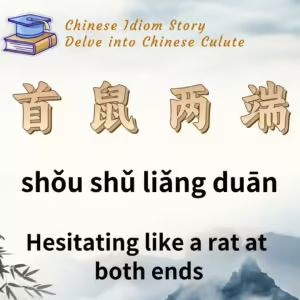
Chinese Idiom: 钩心斗角 (Gou Xin Dou Jiao)
English Translation: Hooking Hearts and Battling Angles
pīn yīn: gōu xīn dòu jiǎo
Idiom Meaning: Originally describing the intricate and elaborate structures of palaces, it is now used to metaphorically represent scheming, intrigue, and covert conflicts among people.
Historical Source: 唐代杜牧《樊川文集·阿房宫赋》 (Du Mu’s “A Fang Palace Ode”)
Idiom Story:
The phrase “钩心斗角” comes from the opening lines of Du Mu’s poem “A Fang Palace Ode,” which vividly depicts the opulence and grand architecture of the A Fang Palace. The poem begins with an exaggerated description of the palace’s magnificence:
“When the six kings perished, the world was united. The mountains of Shu stood bare, and A Fang emerged. It covered over three hundred miles, blocking out the sun. From the northern peak of Lishan, it curved westward to Xianyang. The two rivers flowed steadily into the palace walls. Five steps lead to a tower, ten steps to a pavilion; the corridors twist and turn like a silk ribbon, and the eaves rise like bird beaks, each conforming to the terrain, with structures intricately designed, each with its heart and angle, winding and turning like a bee’s nest, like whirlpools of water, standing tall, who knows how many thousands of structures there are…”
In this passage, Du Mu uses the term “钩心斗角” to convey the elaborate and meticulous architectural design of the palace. The phrase captures the essence of the palace’s layout, where each building interacts with the next, creating a complex, layered structure that reflects the ambitions and struggles of those who built it.
Over time, “钩心斗角” evolved to describe the subtle and often deceitful maneuvers individuals employ against each other in the pursuit of power or advantage. It symbolizes the intricate schemes and conflicts present in both royal courts and everyday life, emphasizing the depth of human cunning and rivalry.






